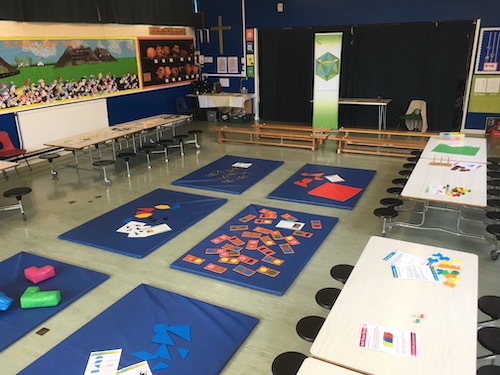Or search by topic
Number and algebra
Geometry and measure
Probability and statistics
Working mathematically
Advanced mathematics
For younger learners
Maths Club and Roadshow Resources
 These hands-on problem solving activities have been used in our Maths Roadshow, and may be of interest to teachers wanting to run similar maths events, maths clubs, open evenings or family-friendly maths events.
These hands-on problem solving activities have been used in our Maths Roadshow, and may be of interest to teachers wanting to run similar maths events, maths clubs, open evenings or family-friendly maths events.
Most of the resources include a link to a printable sheet (either at the top or bottom of the page), along with teachers' resources, which offer some guidance on how the activity can be used with students. Many of the activites require some sort of equipment, mostly dice, counters or multilink, so you might find this equipment
list helpful.
Resources by Key Stage
If you have access to computers or tablets, you may find these interactive tasks useful:
You may also find suitable resources which focus on developing key mathematical skills in the following collections:
Be a Mathematician (Primary)
Thinking Mathematically (Secondary)
You may also find suitable resources which focus on developing mathematical habits of mind in the following collections:
If you've enjoyed working on these problems, you may like to take a look at Wild Maths, where you'll be encouraged to be a creative mathematician.

